The University of Chicago Press, Chicago 60637
The University of Chicago Press, Ltd., London
2019 by The University of Chicago
All rights reserved. No part of this book may be used or reproduced in any manner whatsoever without written permission, except in the case of brief quotations in critical articles and reviews. For more information, contact the University of Chicago Press, 1427 E. 60th St., Chicago, IL 60637.
Published 2019
Printed in the United States of America
28 27 26 25 24 23 22 21 20 19 1 2 3 4 5
ISBN-13: 978-0-226-65608-3 (cloth)
ISBN-13: 978-0-226-65611-3 (paper)
ISBN-13: 978-0-226-65625-0 (e-book)
DOI: https://doi.org/10.7208/chicago/9780226656250.001.0001
Library of Congress Cataloging-in-Publication Data
Names: Ibson, John, author.
Title: Men without maps : some gay males of the generation before stonewall / John Ibson.
Description: Chicago : The University of Chicago Press, 2019. | Includes bibliographical references and index.
Identifiers: LCCN 2019005771 | ISBN 9780226656083 (cloth : alk. paper) | ISBN 9780226656113 (pbk. : alk. paper) | ISBN 9780226656250 (e-book)
Subjects: LCSH : Gay menUnited StatesHistory20th century. | Gay couplesUnited StatesHistory20th century.
Classification: LCC HQ 76.3. U 6 I 27 2019 | DDC 306.76/620973dc23
LC record available at https://lccn.loc.gov/2019005771

This paper meets the requirements of ANSI / NISO Z 39.481992 (Permanence of Paper).
To my fellow graduate students and their dear ones in History of American Civilization at Brandeis a mere fifty years ago
Together and AloneSelf-Definition without Many Models
Of the Bibles many problematic proclamations, few are as wrongheaded as the insistence in Ecclesiastes 1:9 that what has been will be again, what has been done will be done again; there is nothing new under the sun. Indeed, today it seems that virtually every sunrise illuminates something somewhere vastly different than its predecessor of the day before. When the biblical passage was composed, of course, human life was hugely more stable in its structural arrangements and cultural meaningsnot only day by day, but from decade to decade, even century to centurythan has been the case in much of the world since the Industrial Revolution. But as much as modern history chronicles change, it also records substantial continuity and fierce resistance to change. Helping ensure continuity is cultural transmission from one generation to the next, a crucial way that humans learn what to think and do, how to be in the world, in part from various modeling figures throughout their lives. As one of the erudite monkeys observes in Planet of the Apes, Human see, human do.
The absence or avoidance of such behavioral models and of other sources of cultural information can itself produce significant change, requiring imagination, resourcefulness, even courage, as people more or less on their own move outside previous paradigms of thought and action. Men without Maps is a book about a large number of American men in the middle decades of the twentieth century who displayed an abundance of courage and creativity as they constructed lives, and an identity for themselves, that acknowledged their sexual attraction to other malesand did so having had precious little affirmative modeling or guidance of any sort, instead mostly encountering scorn, from the society in which they had come of age. This is a book about men who lived largely without, or for whom there was little direct resonance within, the cultural maps that were provided in such conspicuous ubiquity through the first half of the twentieth century to males and females sexually attracted to each other. These maps for men and women were guides provided by their own parents; by powerful social institutions such as the medical profession, schools, and churches; in countless works of fiction and nonfiction alike; and by virtually every agent of popular culture, in music, the movies, and advertisements, on the radio, and eventually by the early situation comedies on television. Pervasively, American culture throughout the twentieth centurys first half had been no less than basic training for life as a heterosexual. The maps for that were all over the place, free for the asking, and were provided, forcefully at times, even to those for whom they were wholly inappropriate.
This books very title, with its map metaphor, requires some qualification, best noted here, at the outset. Regardless of the direction of ones desire, so powerful was the cultural emphasis on heterosexuality during the first half (and more) of the twentieth century that few could escape it, leaving the men in this book not exactly without maps, but largely without guidance that took into account, to say nothing of honoring or encouraging, their particular needs and yearnings. One might better speak of relative maplessness, cumbersome as that term might be, or might meaningfully point to the negative maps provided by those many who denounced queerness, the clandestine maps available in certain queer spaces, or the surreptitious maps provided by such sources as mens bodybuilding magazines or pen pal clubs. Not merely an authors liking of alliteration has inspired this books title: The heterosexual hegemony during the period encompassed by this book makes its title apt. When it came to maps of their own, openly distributed and consulted, gay men mostly went without until the 1970s and later.
My focus is on gay males in the United States of the generation before Stonewall, men who put together their lives and their sense of self during the half century or so of tremendous cultural fermentaccelerating modernization, two world wars, the Great Depression, and the early Cold Warthat took place before the burgeoning of the gay rights movement across the country in the late 1960s and the 1970s. The men in this book lived at a time when an individuals very identity, sexually speakingin a society increasingly focused on sexhad largely come to be determined externally, by the sex of those with whom the individual desired to have sexual involvement. The implications of that identity for heterosexuals was a matter of endless public discourse, but for homosexuals the implications were mostly a matter of secrecy, silence, speculation, or shame. To be sure, life for gay men in America did not suddenly become a bed of roses from the 1970s onward, but the role models and cultural information available to them did increase greatly during that later time.
The relative absence of information and models that I am calling maps for men attracted to each other should not be confused with a lack of opportunity for sexual contact between persons of the same sex. Such opportunities to have sex, of course, have existed throughout human history and were in no short supply for men in the United States during the first half of the twentieth century. But when an activity is scorned by a societys dominant culture, the activity typically must be furtive, accompanied by varying degrees of punishment, ridicule, guilt, secrecy, and shameand for some, of course, also by the excitement of risk taking, even by finding pleasure in misbehavior. How-to manuals, literal or figurative, are not providedexcept in indirect, inadvertent ways, typically as part of denunciations. Though historians have been properly skeptical in recent years about the actual impact of advice literaturea type of mapthe content and availability of such literature on a particular topic is nonetheless important cultural evidence, an index of attitudes, if not of behavior. The complete absence of such literature, which defines the midcentury situation for gay men, is revealing as well. David P. McWhirter and Andrew M. Mattisons


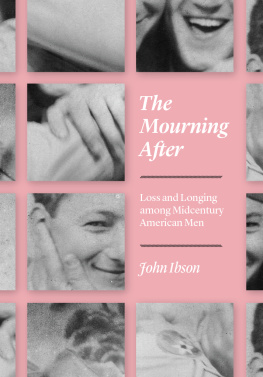
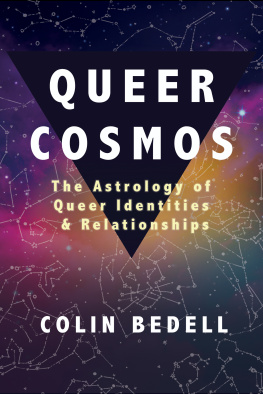
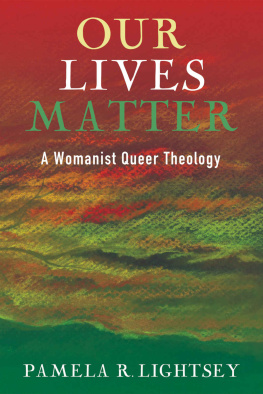
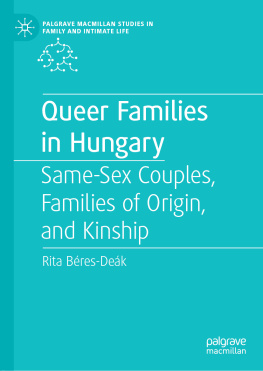
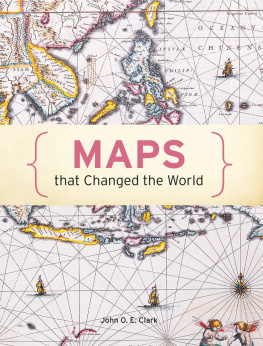

 This paper meets the requirements of ANSI / NISO Z 39.481992 (Permanence of Paper).
This paper meets the requirements of ANSI / NISO Z 39.481992 (Permanence of Paper).